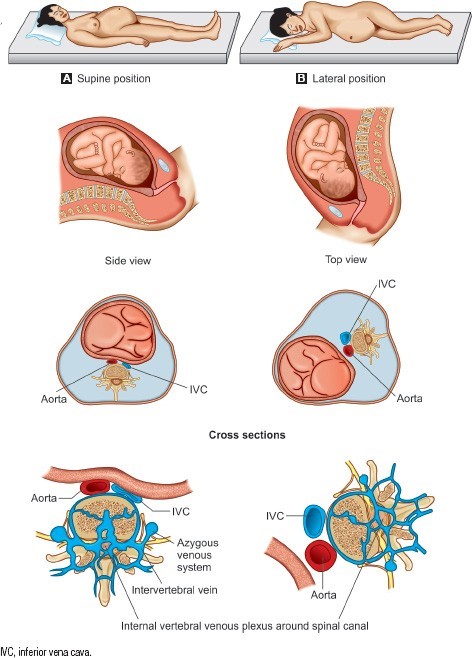A nurse is assisting in the care of a newly admitted client.
Which of the following findings should the nurse report immediately to the provider?
Select all that apply.
Heart rate
Pain
Cold, clammy skin
Mental confusion
Respiratory status
Blood pressure
Urine output
Temperature
Sodium level
Correct Answer : A,C,D,F,G,H
A. The heart rate increased from 90/min on Day 1 to 110/min on Day 2, indicating tachycardia. This can signify an underlying issue, such as hypovolemia or sepsis, especially given the other concerning findings.
B. While the pain level increased from 3/10 to 6/10, pain itself is subjective and should be monitored closely. It may require adjustment in pain management but is not immediately life-threatening compared to other findings.
D. The client's confusion and slow response can indicate a change in neurological status, possibly related to electrolyte imbalances, dehydration, or infection. This is a significant finding that requires immediate attention.
C. The client's skin changed from warm and dry to pale, cool, and clammy, suggesting possible shock or hypoperfusion. This is a critical sign that needs to be communicated to the provider.
E. The respiratory rate increased from 18/min to 22/min, indicating mild respiratory distress. While concerning, it does not represent an acute emergency compared to other findings and should be monitored.
F. The blood pressure dropped from 126/78 mm Hg on Day 1 to 80/60 mm Hg on Day 2, indicating possible hypotension. This change could signify worsening clinical status, potentially indicating shock or significant fluid loss.
G. The urine output decreased significantly from 400 mL over 8 hours to 100 mL over 6 hours, indicating possible acute kidney injury or dehydration.
H. The client’s temperature has increased from 37.2°C (99°F) to 38.4°C (101.1°F), indicating a possible infection or inflammatory response.
I. The sodium level remains within normal limits (144 mEq/L) and does not show significant changes. Therefore, it does not require immediate reporting.
Nursing Test Bank
Naxlex Comprehensive Predictor Exams
Related Questions
Correct Answer is C
Explanation
The client's symptoms of feeling dizzy, having a racing heart, and becoming pale while lying on their back may indicate supine hypotensive syndrome. This condition can occur during pregnancy when the weight of the uterus compresses the inferior vena cava, reducing blood flow to the heart and causing a drop in blood pressure.
Positioning the client on their left side helps relieve the pressure on the inferior vena cava and improves blood flow. This position allows for optimal circulation and helps alleviate the symptoms associated with supine hypotensive syndrome.

Checking the client's temperature is not necessary in this situation as the symptoms described are not typically associated with a fever. The priority is addressing the client's symptoms related to supine hypotensive syndrome.
Instructing the client to take a brisk walk is not recommended as it may exacerbate their symptoms. Walking increases physical exertion and could further decrease blood flow to the heart.
Providing the client with a glass of orange juice may be helpful if the symptoms were related to low blood sugar (hypoglycemia). However, in this case, the symptoms are more consistent with supine hypotensive syndrome. The priority is to reposition the client to improve blood flow and relieve symptoms. If the client continues to experience symptoms or if there are concerns about low blood sugar, further assessment and appropriate interventions should be implemented.
Correct Answer is D
Explanation
The correct answer is choiced. Route.
Choice A rationale:
The time of administration is typically specified in the prescription and does not usually require clarification unless there are specific concerns about timing with other medications or meals.
Choice B rationale:
The medication, erythromycin, is clearly specified in the prescription. There is no ambiguity about which medication is being prescribed.
Choice C rationale:
The dosage of 500 mg is clearly stated and is a standard dose for erythromycin. There is no need to clarify this unless there are specific patient concerns or conditions that might affect dosing.
Choice D rationale:
The route of administration (e.g., oral, intravenous) is crucial information that must be clarified if not specified.Erythromycin can be administered in multiple ways, and the effectiveness and side effects can vary depending on the route
Whether you are a student looking to ace your exams or a practicing nurse seeking to enhance your expertise , our nursing education contents will empower you with the confidence and competence to make a difference in the lives of patients and become a respected leader in the healthcare field.
Visit Naxlex, invest in your future and unlock endless possibilities with our unparalleled nursing education contents today
Report Wrong Answer on the Current Question
Do you disagree with the answer? If yes, what is your expected answer? Explain.
Kindly be descriptive with the issue you are facing.
